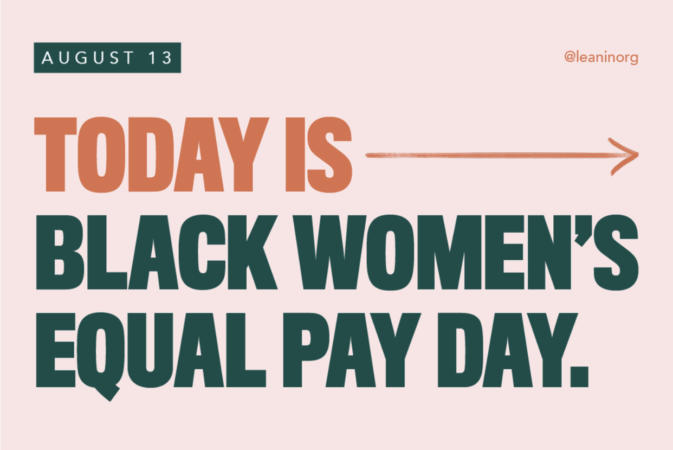As the U.S. finds itself in the midst of a social reckoning, employees in corporate America are demanding that companies across all industries address the uncomfortable reality of unfair work environments.
For women in the workplace, data has shown them to be at the bottom of the totem pole when it comes to promotions, pay equity, and access to resources their male counterparts have. Of all the reports from within corporate America, what has become strikingly clear is that women of color and Black women, in particular, are having the worst experiences of them all.
In honor of Black Women’s Equal Pay Day, this year LeanIn.Org — an organization that helps women achieve their ambitions and work to create an equal world — has published a new research report that speaks to “The State of Black Women in Corporate America.”

The new report draws on several years of research conducted and compiled by LeanIn.Org and McKinsey & Company as well as data submitted by companies like Facebook and many others. It is believed to be the largest study published on the experiences of Black women in the workplace to date.
Over 250,000 employees were surveyed for this report through LeanIn.Org’s yearly effort that takes a detailed look at the mistreatment of Black women employed in corporate America as a disadvantaged community.
This report, spearhead by Sheryl Sandberg — COO of Facebook and founder of LeanIn.Org — and Rachel Thomas — co-founder and CEO of LeanIn.Org — arrives at a time where Americans are taking a closer look at companies’ work environments and how effective they are for their employees, especially for Black women who have been historically treated as insignificant.
“It feels so critically important that we highlight experiences of Black women,” said Thomas. “The one thing we’ve seen year after year through our research is the very same pattern — the workplace is worse for women than men, the workplace is worse for women of color than white women, and Black women are having the worst experience of all.”
The biggest misconception for many people is not knowing exactly what Black women in the workplace face on a day-to-day basis. As it turns out, much of the discrimination they experience occurs at their jobs.
A poignant fact that Sandberg points out is that “a white man starts working Jan. 1, 2019 and a Black woman has to work until today to make the same amount.”

In terms of treatment in the workplace, Thomas says that Black women are more likely to face barriers to advancement, less likely to get support, and more likely to experience everyday discrimination, or what we often refer to as microaggressions.
Sandberg echos this exact notion stating that Black women get less support from their managers and senior leaders, while 59 percent of them have also never had an informal interaction with a senior leader in the workplace, according to the report.
Thomas shares that the intent behind this report is to make employers aware of what’s happening within the infrastructure of their companies and urge them to make the workplace equal for women.
In order to create effective change in corporate America, company leaders have to specifically focus on advancing and supporting Black women while being transparent with their organizations.
By taking an intersectional approach to diversity and inclusion — that looks at both gender and race — companies can break down the misogynistic and racist barriers that exist in corporate America. However, the only way to do this is to center on the most marginalized group of them all — Black women.
“We have to take note of the moment we find ourselves in to really see what we can do to make things better for women, and Black women particularly,” said Sandberg. “This change has been a long time coming and it’s really incumbent on us to take this moment for what it should be.”
The hope is that this collective effort behind publishing such a revealing report is to inspire change in the workforce and shape a better future for Black women moving forward.
“The real message we want to put out with this report is if employers want to do better by women, they need to do better by Black women,” said Thomas.
For the full State of Black Women in Corporate America report, click here.

